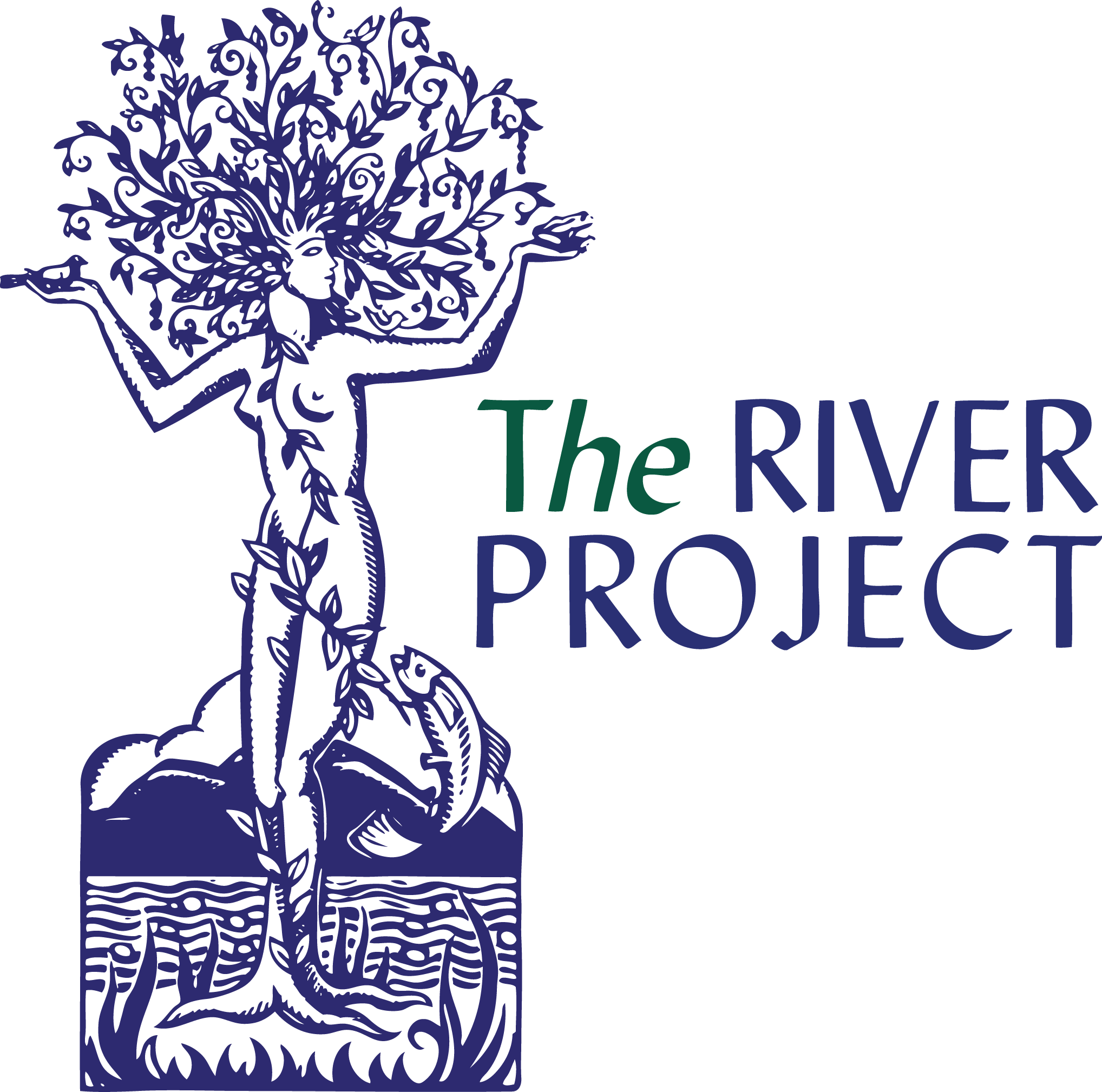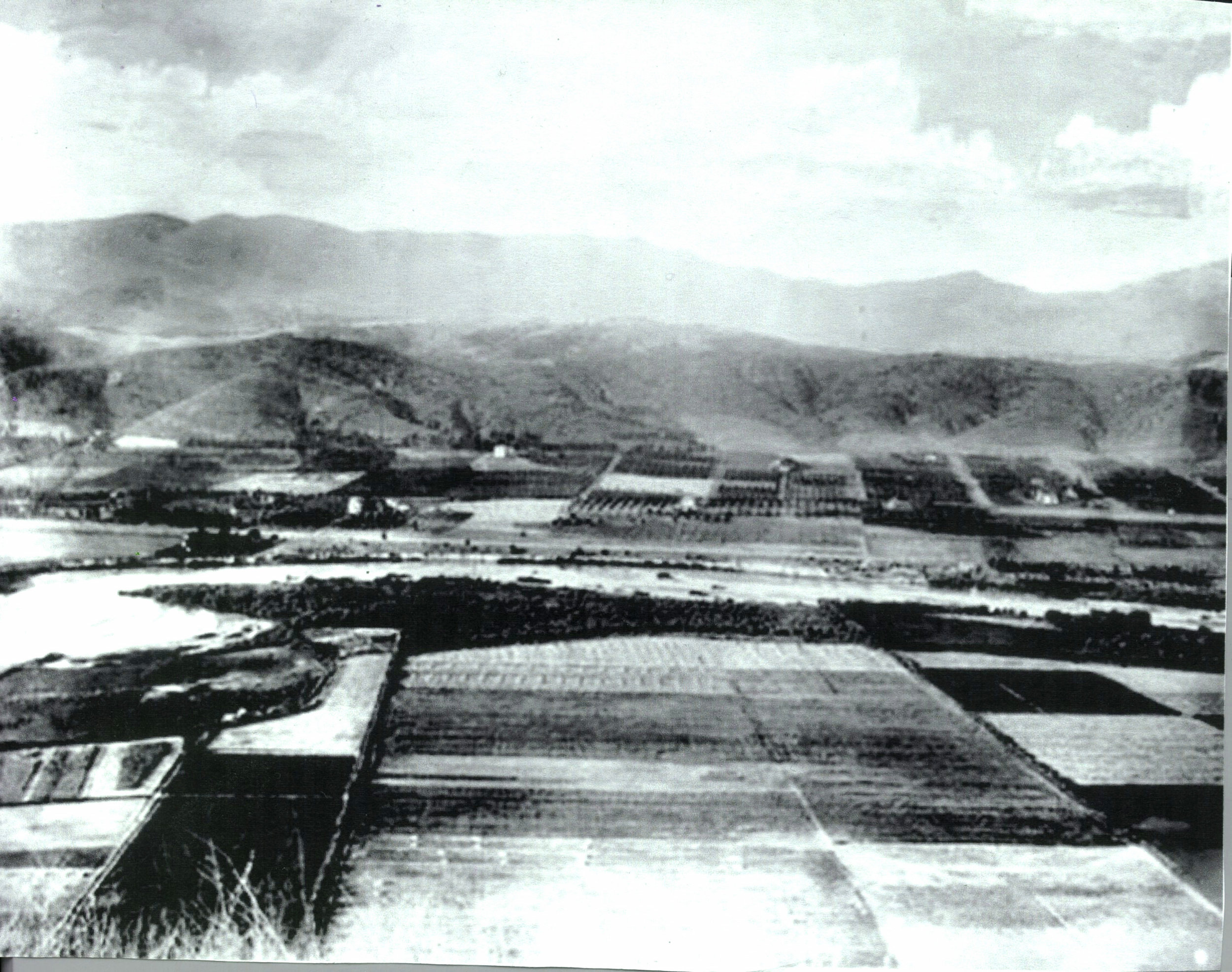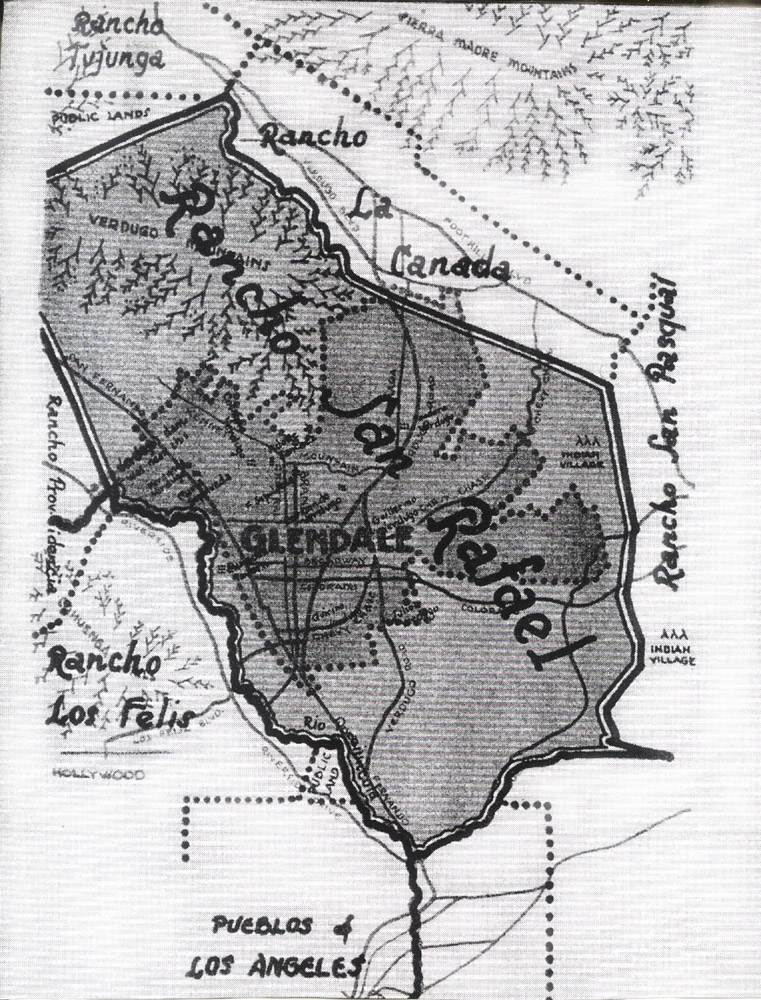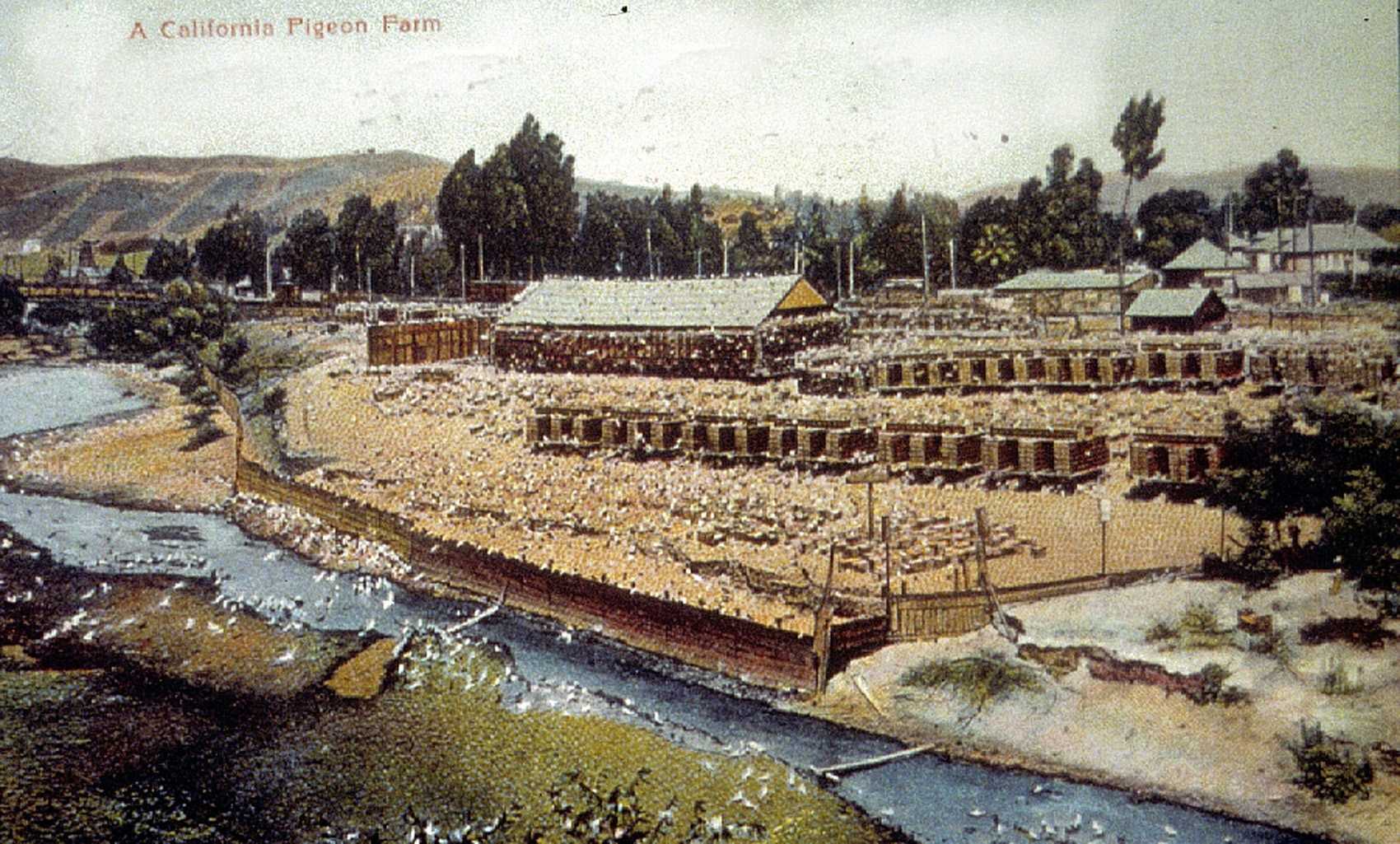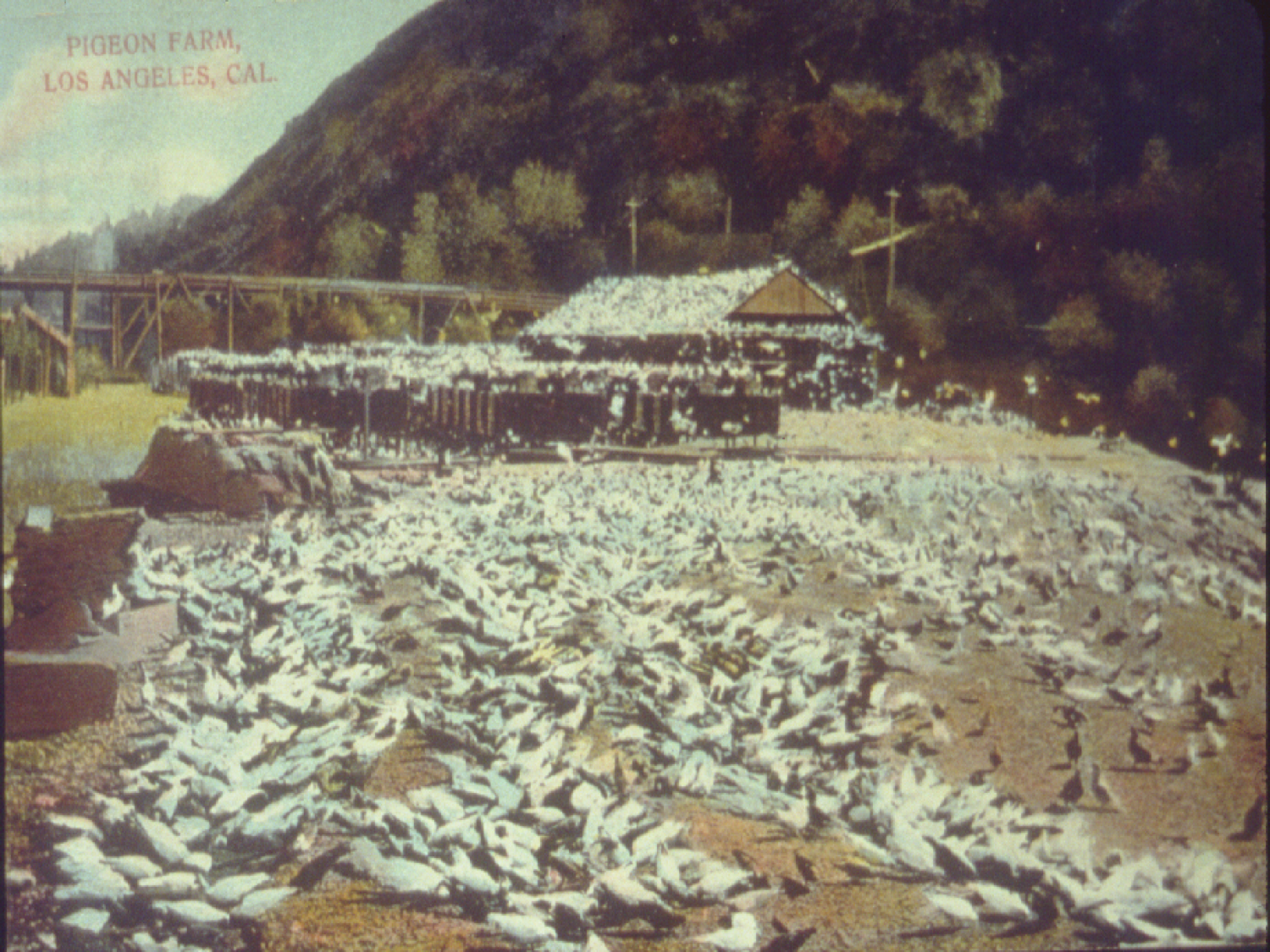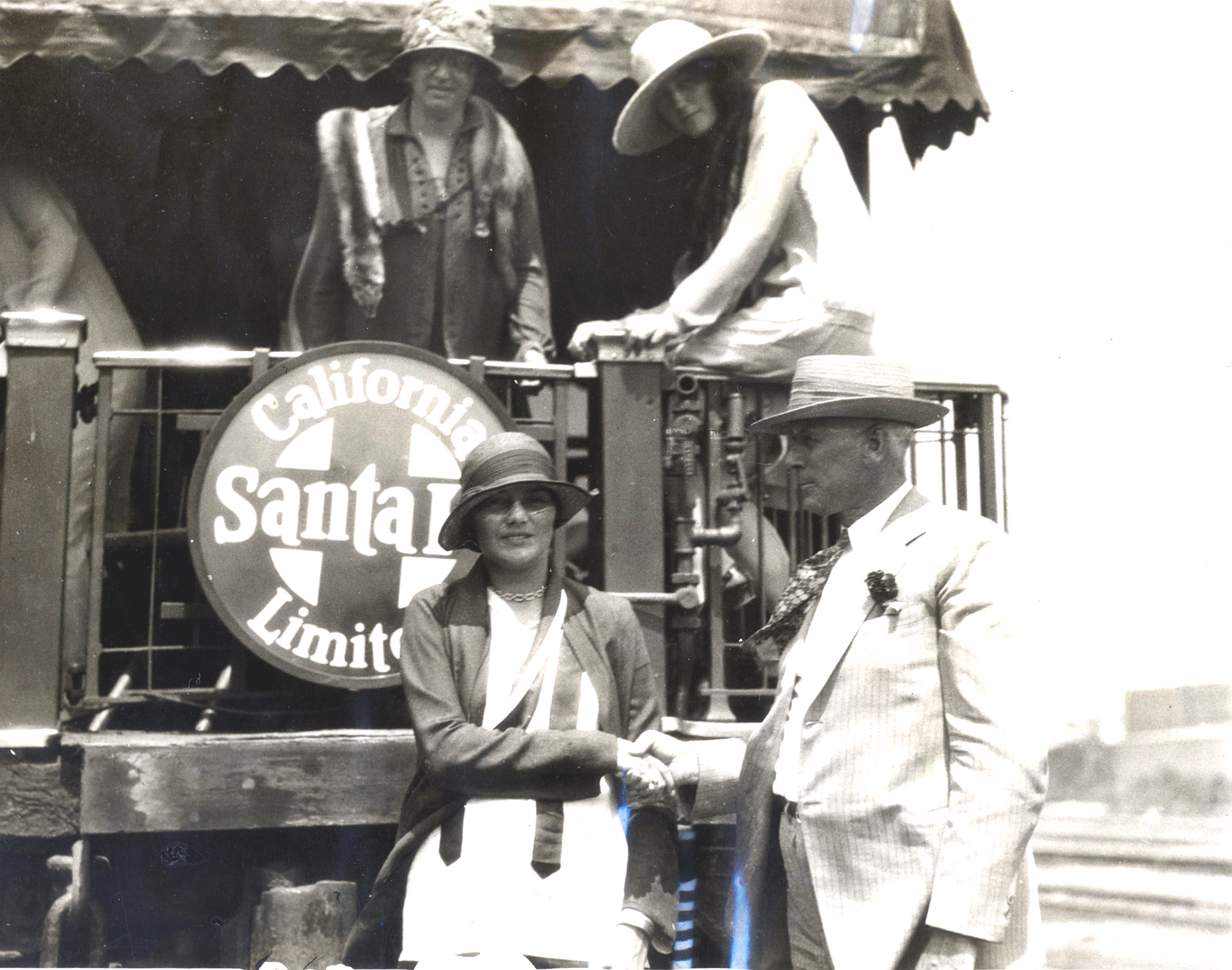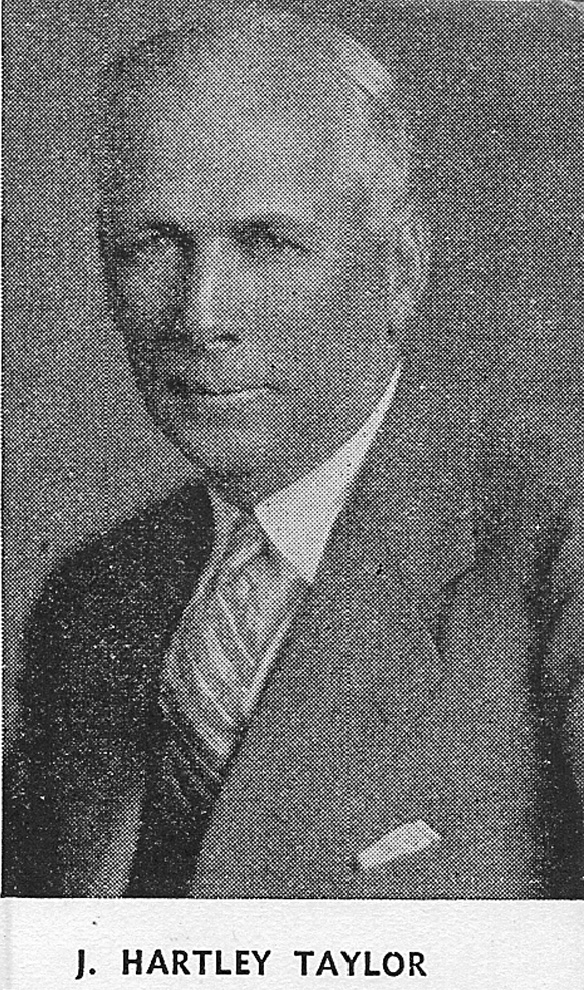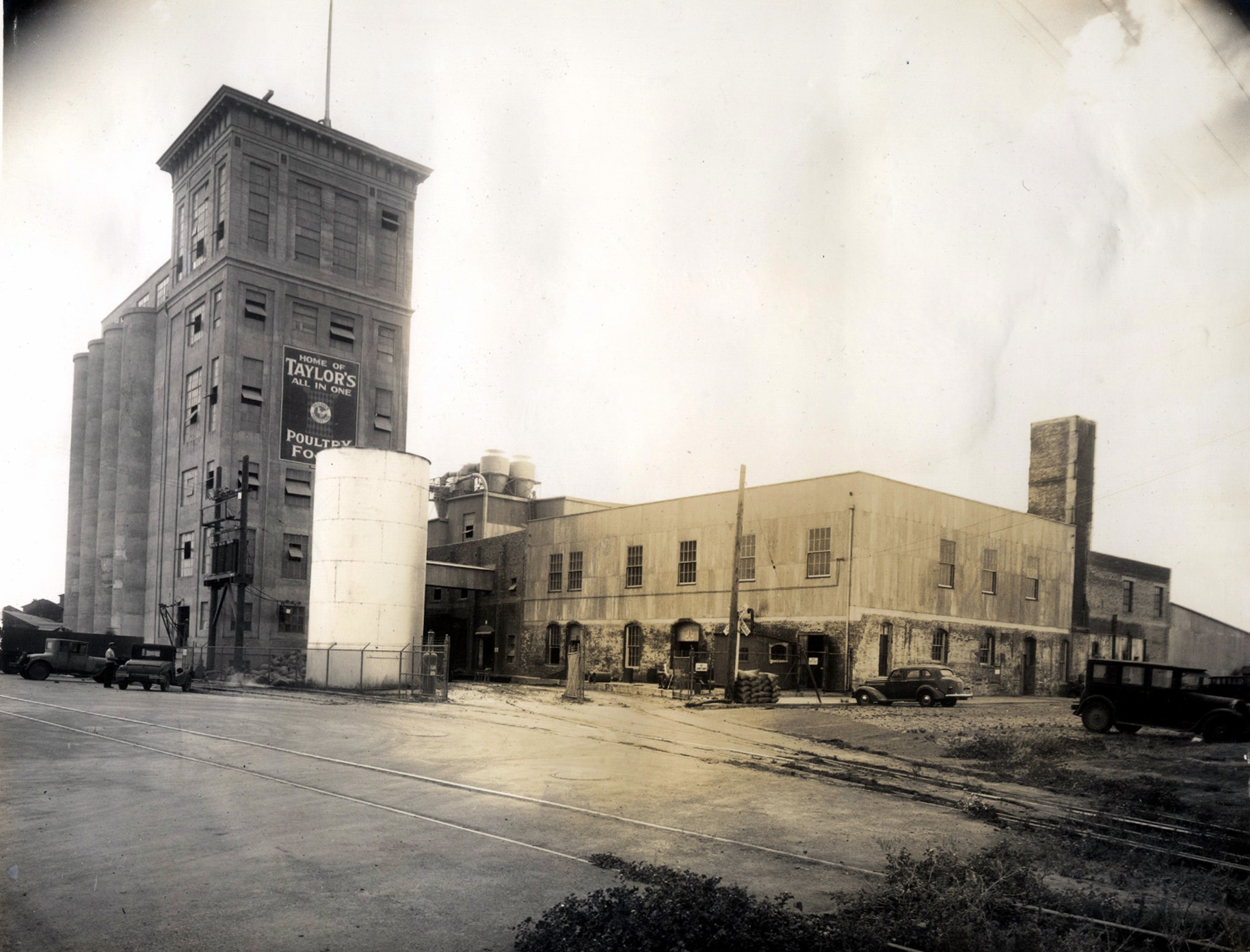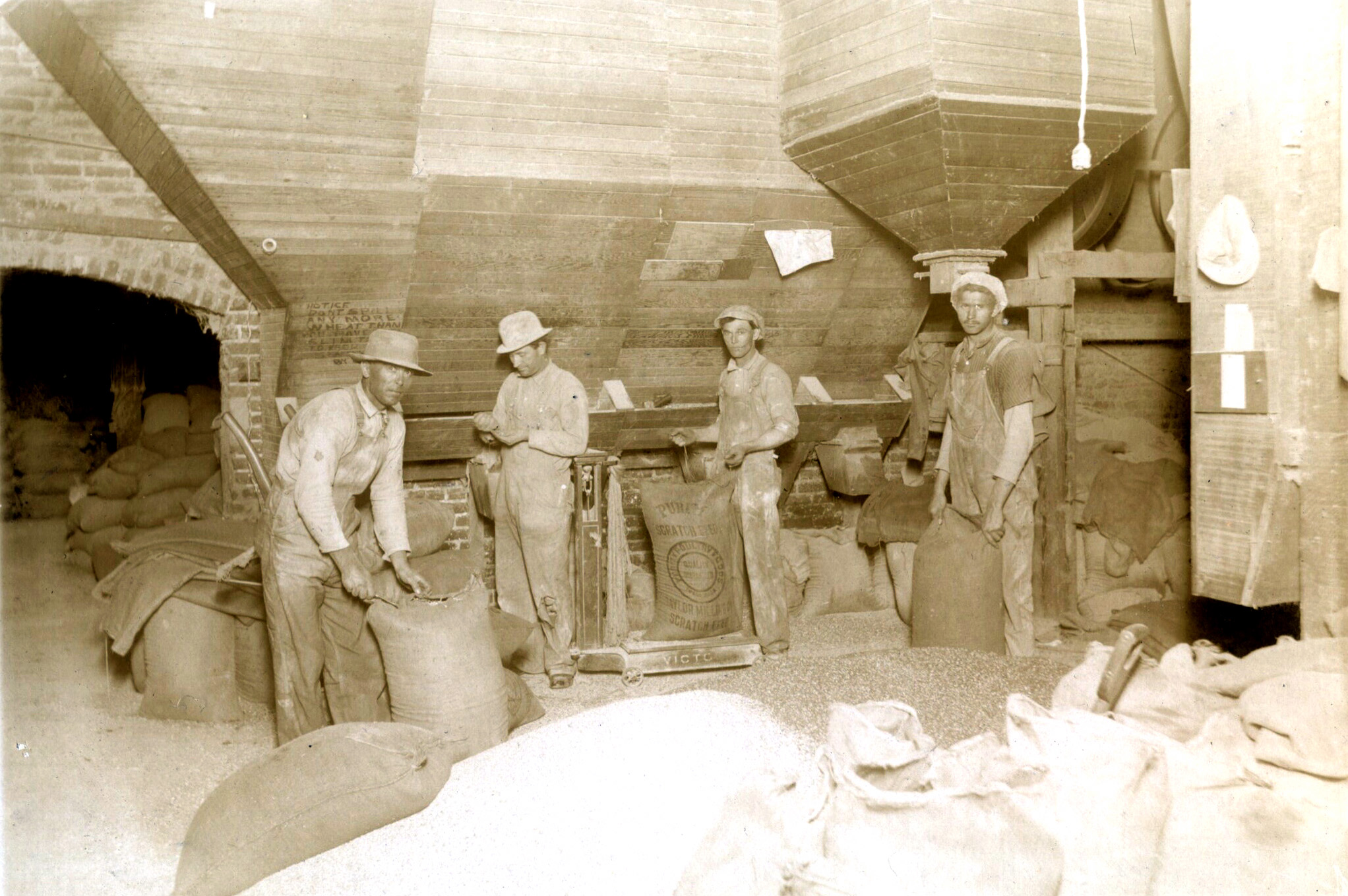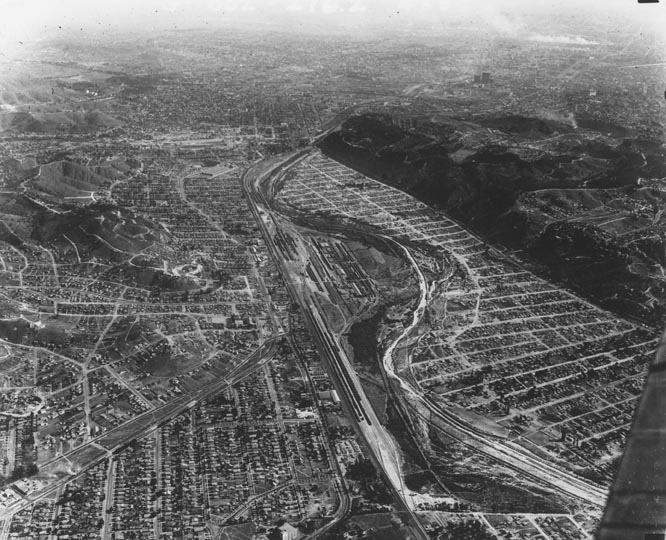Early History: 1700–1920
Taylor Yard is uniquely connected to the early history of Los Angeles. Home for centuries to the Tongva Indians, it is, by most accounts, where Los Angeles was dubbed "Los Angeles." It is the site described in the first recorded written words about Los Angeles, the very site where the Portola expedition spent the night August 2, 1769, after crossing he Arroyo Seco. Father Crespi, the expedition's diarist rhapsodized for more than a thousand words that day about this "green, lush valley," its "very full flowing, wide river", the "riot of color" in the hills.
The place defined abundance - native grapevines, wild roses & sage growing in rich soils, grizzly, antelope, quail and steelhead trout for the taking.
The first two days of August marked the annual feast of Our Lady of the Angels of Porciuncula - so they named the river and the valley through which it flowed in its honor: "El Rio y Valle de Nuestra Senora la Reina de Los Angeles de la Porciuncula", later shortened to Rio de Los Angeles.
In 1781, the Pueblo was established just downstream, on the river's west bank. The alignment now known as San Fernando Road provided the major access route between the Pueblo of Los Angeles and the Mission San Fernando.
The area was part of the one of the first and largest original land grants made to the Mexican and Spanish settlers to establish the pueblo of Los Angeles. Known as Rancho San Raphael, the 36,000-acre land grant was made to Jose Maria Verdugo on October 20, 1784 by Governor Gages. California was admitted to the Union in 1850. In 1871, the US Land Commission confirmed the Rancho of San Rafael to the Verdugo family.
The land was subdivided in 1881 and sold to Andrew Glassell, Alexis Jeffries, Harriet Atwater Paramour, and others. Early development in the area consisted of agriculture, a few homes along Figueroa Street and summer cottages in the hills overlooking the Arroyo Seco. Mount Washington began attracting artists in the 1890's.
Starting in the late 1890’s, the site was owned by J. Hartley Taylor. Mr. Taylor was a prolific entrepreneur who owned the Taylor Grocery and the Taylor Milling Company, a commercial feed manufacturer on San Fernando Road. Taylor raised oats, barley, hogs and pigeons on the riverfront land.
Most of the homes in the Taylor Yard area were not constructed until the housing boom of the 1920's.
In the late 1930s, the banks of the Los Angeles River were encased in concrete. Read the History of the Los Angeles River.
